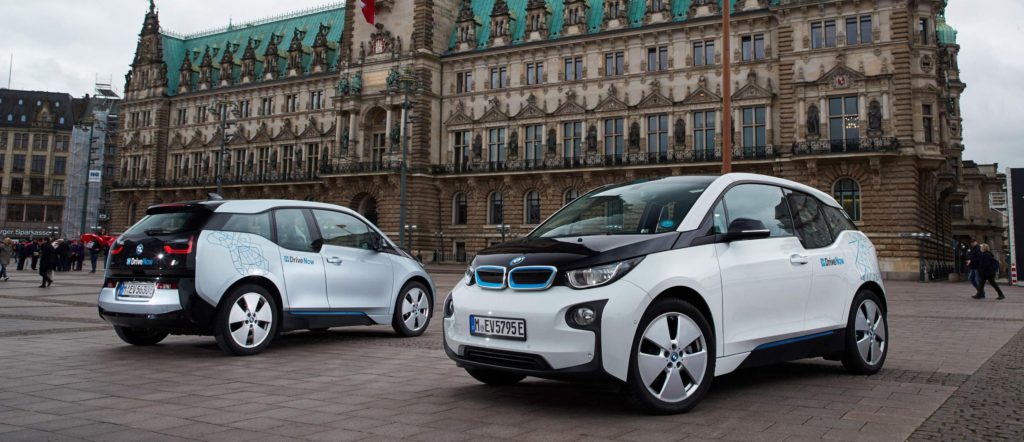Increased investment in electrification development for BMW
21 March 2018

21 March 2018
BMW is increasing its investment in research and development on electric vehicles (EVs) as it looks to strengthen its line-up and compete with other manufacturers.
The German company is one of the few vehicle manufacturers to have a range of EVs already on sale, with its i3 city car and i8 hybrid. However, with others ramping up investment in the technology, the company is doing all it can to stay ahead.
Therefore, BMW will increase spending in the area to €7 billion in 2018, as it continues plans to bring 25 electrified models to market by 2025. This will not affect the group’s profits, which are expected to be over €10 billion, in line with last year’s level.
Spending on developing electric and autonomous cars pushed R&D costs a billion euros higher last year, reaching €6.1 billion.
′Investment will rise by a further high three-digit million-euro amount year-on-year, primarily from the ongoing new model initiative as well as continued work on e-mobility and autonomous driving,’ BMW said in a statement at its annual press conference.
Half of the 25 electrified models BMW Group plans to launch across its brands by 2025 will be fully electric and powered by fifth-generation battery and drivetrain technology. Starting in 2021 the automaker’s EVs will be capable of offering an all-electric range of up to 700 km and its plug-in hybrids will have an electric range of up to 100 km, BMW said.
The German company will begin its 25 new model range with the i4, which was officially announced at Geneva. While there is no official date for production starting, the battery-powered sedan model could come after the company’s iNEXT vehicle which will launch in 2021.
Other models coming as part of the new electrified range include a new electric Mini, which will be built at the company’s Oxford plant and will launch next year, followed in 2020 by a full-electric BMW X3.
The i4 will be produced at the BMW’s factory in Munich where it builds 3- and 4-series models. BMW has secured naming rights for the badges i1 to i9 and iX1 to iX9 as it seeks to benefit from the industry shift toward battery-powered cars.
The increased attention to EVs is due in part to the fall of the European diesel market, and the need for manufacturers to meet strict CO2 targets set out by the EU Commission by 2021. Following this, even stricter goals are set to come into play, meaning without diesel, carmakers need another low or zero-carbon technology to rely on.
Separately, BMW said the prospect of diesel bans in German cities had hit the second-hand values of some cars, leading to a rise in the credit loss ratio to 0.34%, from 0.32% a year earlier.
The increase was mainly due to the debate on diesel engines in parts of Europe, BMW said. BMW said risks related to the residual value of used cars were covered by risk provisions.
Photograph courtesy of BMW